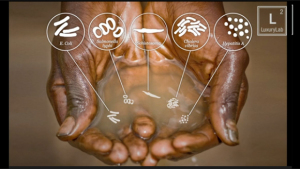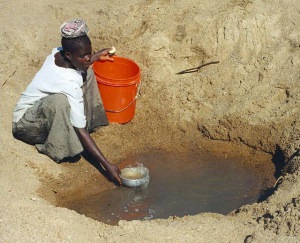The small amounts of water that these women and children gather are often only used for drinking and food preparation, this leaves little hope for basic hygiene that prevents diseases.
The lack of water for proper hygiene allows the spread harmful pathogens and bacteria, which are a major cause of diarrheal disease, sickness, malnutrition, and death. Women and children bare the majority of these burdens as the caregivers in the family. Also, women are typically the ones to care for the family’s vegetable gardens, if they have access to land. Without adequate amounts of water for irrigation, crops suffer and women are not able to feed their families.
In many places in Africa, the available water source, even at a great distance, is contaminated. Many women do not have enough fuel to boil water. Additionally, often new technologies for water treatment are taught to the men in the village and the knowledge remains unshared with the women who manage the water collection and storage. This water that is gathered under very precarious conditions, if left untreated, has the potential to infect small children and elderly adults with deadly diseases.
Improved water sources are the first step to empowering women in developing countries. As the main users of water, women’s lives, like that of Assétou, are waiting to be radically changed by a water well drilling program like ours…
There is a solution….
ONE WELL PER VILLAGE
We believe people, not water, can change everything! When you sponsor Well Drilling Project in Burkina Faso, Africa you’ll unlock the potential of an entire community.



